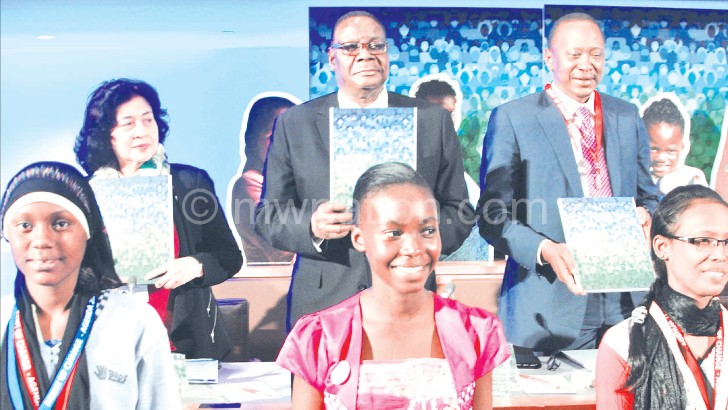‘Invest in girls’e ducation, health’
A 13-year-old Mtisunge Kamphale from Blantyre addressed this year’s 70th United Nations General Assembly (UNGA) in New York on challenges girls face in Malawi, Africa and the world.
She attended the global summit courtesy of Let Girls Lead International, a global movement of champions who empower girls to attend school, stay healthy, escape poverty and overcome violence.
Mtisunge appealed to global leaders, that included President Peter Mutharika, to invest in girls’ education and health.

Mtisunge’s speech dwelled on Sustainable Development Goal (SDG4) which ensures inclusive and equitable quality education and promote life-long learning opportunities for all.
“My appeal to you is to hear girls’ cry and consider their issues in the post-2015 development agenda. Prioritise us when it comes to resource allocation and promotion,” she told the gathering.
Mtisunge, a Form One student at Mulunguzi Community Day Secondary School (CDSS) in Blantyre, cited poor promotion of girls’ education, health, Female Genital Maturation (FGM), early and forced marriages as major challenges currently hindering the development of girls in most African countries.
“When more girls are forced into marriage, a country bears the consequences because this increases figures of sick, malnourished, illiterate and jobless population which affect the development of the nation,” said Mtisunge.
According to Girls Not Brides-Malawi Chapter-a consortium of Non-Governmental Organisations (NGOs) working to end child marriage in Malawi, 50 percent of adolescent girls in most poor communities of Malawi drop out of school and end up in forced marriages due to harmful traditional practices and poverty.
National coordinator of Let Girls Lead-Malawi Chapter Joyce Mkandawire observes that there are fixed perceptions and harmful cultural practices that compel rural masses to force girls into marriages.
She says such stereotype force many families to drive or tolerate adolescent girls into early and forced marriage at the expense of their right to education and good health.
Robert Mponela, Director of Education Expertise Development Foundation (EEDF) says lack of formal education condemns Malawian children, especially girls to live in extreme poverty, ignorance and poor health. As a result, this negatively contributes to national development.
“Children present a critical opportunity for Malawi’s growth. That is to say investing in their education and health truly helps,” says Mponela.



